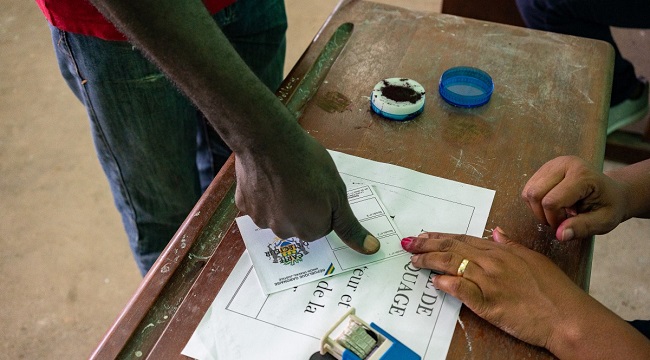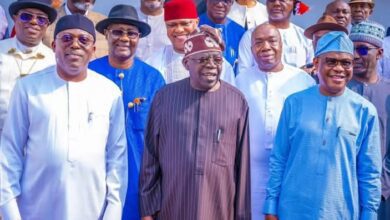Gabon votes on new constitution hailed by Junta as ‘Turning Point’


Gabon extended a night curfew Saturday as it held a referendum on a new constitution the ruling junta says will mark a new chapter after 55 years of dynastic rule in the oil-rich African nation.
The estimated 860,000 registered voters have faced an onslaught of calls by authorities on TV, radio and social media to make their ballot count — whether they choose a green one meaning “yes” or a red one for “no”.
With the campaign dominated by official propaganda by the junta that took power in August last year in a coup, local media say voter turnout will be a key factor.
Voting began late at several polling stations in the capital Libreville with papers still being handed out when the polls opened at 7:00 am (0600 GMT). The 2,835 polling stations nationwide are due to remain open until 6:00 pm.
The junta on Saturday extended a night curfew by two hours, bringing it forward to midnight “during the whole electoral process”, according to a decree read on state television.
It did not specify until when the extended curfew ending at 5:00 am would remain in place.
The proposed constitution sets out a vision of a presidency with a maximum of two seven-year terms, no prime minister and no dynastic transfer of power.
It would also require presidential candidates to be exclusively Gabonese — with at least one Gabon-born parent — and have a Gabonese spouse.
His replacement, transitional president Brice Oligui Nguema, declared the referendum a “great step forward” as he cast his vote at a Libreville school.
“All Gabonese are coming to vote in a transparent fashion,” the junta chief told the press, having ditched his general’s uniform for a brown civilian jacket over light-wash jeans.
Oligui has vowed to hand power back to civilians after a two-year transition but has made no secret of his desire to win the presidential election scheduled for August 2025.
Billboards adorned with an image of the general and urging a “yes” vote are everywhere, the Union newspaper commented on Friday, prompting it to ask: “Referendum or presidential campaign?”
Queues of dozens of voters formed in front of the classrooms housing the polling stations at the Lycee Leon M’Ba in Libreville, under the watchful eye of the soldiers charged with ensuring the ballot’s security.
Nathalie Badzoko, a 33-year-old civil servant, said she was voting “yes” and had faith in the junta but admitted she had “not read the whole text” and its 173 articles.
Louembe Tchizinga, a 45-year-old taxi driver casting his ballot, echoed her.
Opponents of the proposed text dismiss it as tailor-made for the strongman to remain in power.
“We are creating a dictator who designs the constitution for himself,” lawyer Marlene Fabienne Essola Efountame said.
Bongo ruled for 14 years until he was overthrown moments after being proclaimed the winner in a presidential election which the army and opposition declared fraudulent.
He took office on the death of his father Omar, who had ruled with an iron fist for more than 41 years.
The opposition and the military coup leaders accused Ali Bongo’s regime of widespread corruption, bad governance and embezzlement.



